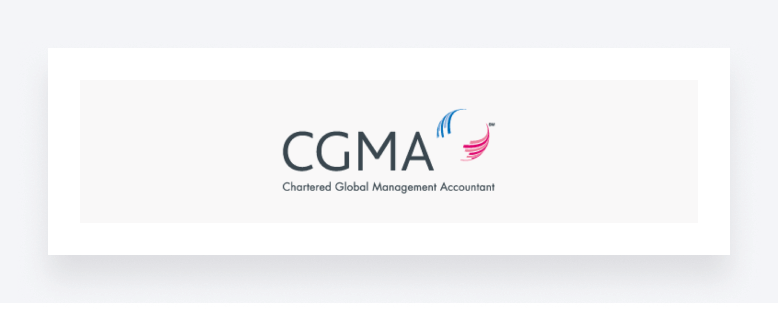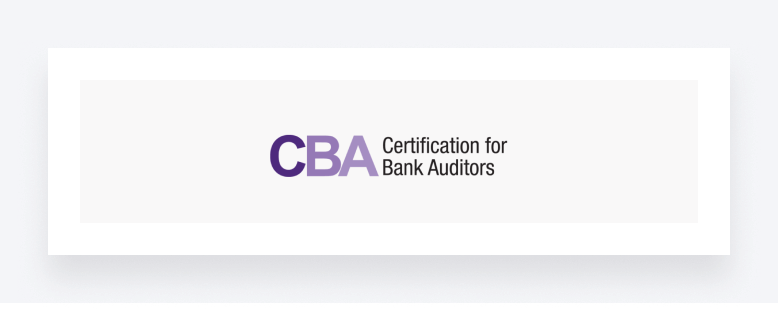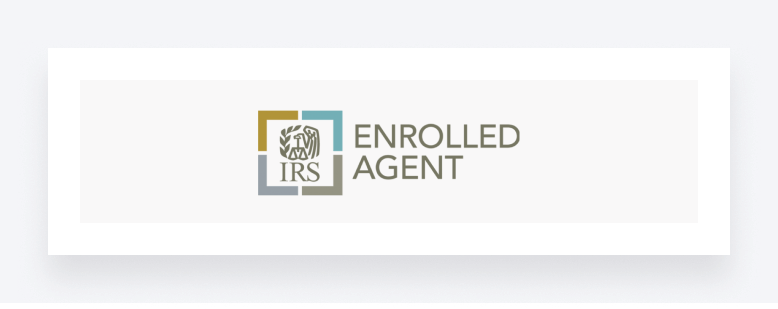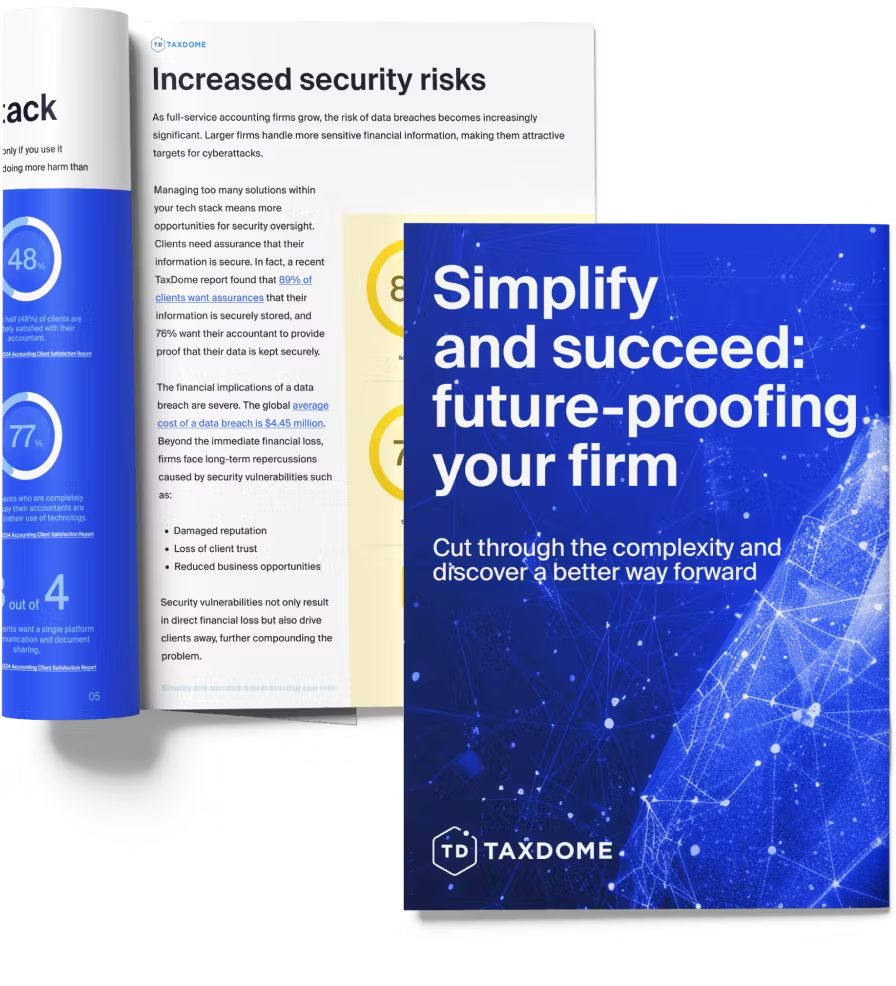
Accountants employ various strategies to enhance their knowledge and acquire new skills, from attending conferences to listening to podcasts. However, the first and most important step is obtaining a relevant credential that holds value across the industry and equips accountants with essential skills for their daily tasks.
Accounting certifications enable employers and clients to validate an accountant’s expertise in areas such as financial reporting, budget analysis and more.
They empower accounting professionals to showcase their specialized knowledge and stand out in a competitive job market. Moreover, certifications provide a clear pathway for career advancement, demonstrating determination and a commitment to ethics and best practices.
In this article, we’ll dive deeper into the following topics:
- What are accounting certifications?
- Which certifications are the most popular among accountants and finance professionals?
- How to choose the right certification to advance one’s career?
- How does a certification process look like?
- How to maintain a certification over time?
- How do employers perceive different certifications?
As a bonus, we’ll address some of the most common questions about accounting certifications. Read on!
What are accounting certifications?
Accounting certifications are professional credentials that accountants earn to demonstrate their expertise in various accounting specialties. Obtaining certifications can help accounting professionals advance their careers, gain credibility and broaden their skills.
Earning an accounting certification typically requires passing an exam administered by an accredited organization. For example, the CPA exam is administered by the American Institute of CPAs.
Given the exam’s difficulty, students often spend hundreds of hours preparing for it. Moreover, maintaining certifications also requires a commitment to ongoing continuing education.
Role of accounting certifications
Accounting certifications play an important role in the industry. They showcase the specialist’s commitment to development in the profession, their credibility and many other benefits:
- Demonstrate specialized expertise. By passing rigorous exams, certified accountants showcase their knowledge of key concepts and principles in areas from auditing to management accounting
- Build credibility. Certifications prove that professionals have met strict competency standards set by industry authorities. This inspires confidence in employers, clients and regulators
- Get industry recognition. Certifications provide standardized benchmarks to assess the abilities of financial professionals. Many certifications also align directly with current regulations and best practices
- Advance in career. Obtaining credentials paves the way for career advancement as it is highly valued by employers. Certain global certifications like the CGMA even facilitate opportunities abroad
In summary, accounting certifications serve to measure expertise, communicate credibility, boost careers and promote high professional standards worldwide.
While there is an impressive number of such certifications, let’s focus on the most popular and demanded ones.
The list of top 10 accounting certifications
These 10 professional accounting certifications are most popular among accountants and employers:
- CPA (Certified Public Accountant)
- CMA (Certified Management Accountant)
- CIA (Certified Internal Auditor)
- CISA (Certified Information System Auditor)
- CFA (Certified Financial Analyst)
- CFE (Certified Fraud Examiner)
- CGMA (Chartered Global Management Accountant)
- CBA (Certified Bank Auditor)
- EA (Enrolled Agent)
- FSAC (Financial Services Audit Certificate)
We will delve into these credentials, exploring the certification requirements, total costs, time commitment, benefits and the certifying authorities in detail.
CPA (Certified Public Accountant)

Description
The Certified Public Accountant designation is one of the most prestigious and widely recognized certifications in the accounting profession. CPAs play a crucial role in providing financial expertise to businesses, individuals and government entities.
They provide services from auditing and taxation to financial planning and consulting, demonstrating a comprehensive understanding of accounting principles.
Requirements
Candidates typically need a bachelor’s degree in accounting or a related field to qualify for the CPA exam. Additionally, they are required to complete 150 hours of education.
Many states also require a specific number of accounting and business-related credit hours, or work experience under the supervision of a licensed CPA.
Costs
The costs associated with becoming a CPA include exam fees, study materials and application fees.
The application fee varies by state, ranging from $50 to $200. The fee to take each section varies as well, and it’s approximately $800 for all four sections.
Benefits
Earning the CPA credential opens doors to a wide range of career opportunities in public accounting, corporate finance and government agencies. Licensed CPAs often experience increased earning potential, career advancement and industry recognition.
Time to certification
The time to become a CPA varies, but on average, candidates may spend 12 to 18 months preparing for and completing the four-part CPA exam.
The exam is offered quarterly, providing flexibility for candidates to plan their studies.
The CPA certificate is granted by the American Institute of Certified Public Accountants (AICPA).
To become a CPA, you must pass the Uniform CPA Examination — the only licensing qualification for accounting and audit professionals in the US.
CMA (Certified Management Accountant)

Description
The Certified Management Accountant certification is tailored for professionals involved in management accounting and financial management.
CMAs provide strategic financial insights to guide organizational decision-making. They play crucial roles in budgeting, cost management and performance evaluation.
Requirements
Prospective CMAs must meet requirements set by the IMA (Institute of Management Accountants). To get the CMA credential, candidates typically need a bachelor’s degree in accounting or a related field.
Additionally, candidates must have at least two consecutive years of professional experience in management accounting or financial management.
Costs
The costs associated with obtaining the CMA certification include exam fees, study materials, and membership fees. The total expenses usually range from $1,500 to $2,500.
Note that IMA charges CMA program fees. Professional members must pay $250 to enroll in the program and $415 for each part of the CMA exam. Student members pay $188 and $311, respectively.
Benefits
Earning the CMA credential demonstrates expertise in financial planning and analysis.
Licensed CMAs often have more career advancement opportunities, increased earning potential and recognition as strategic financial professionals.
Time to certification
The exam consists of two parts, with studying for the first one taking roughly 170 hours, and for the second one around 130 hours. IMA recommends studying for 12 hours every week, and following this plan, candidates can pass the exam in 25 weeks.
Overall, candidates complete the CMA program in approximately 6 to 12 months. The CMA exam is offered during three testing windows each year: check the IMA website for a detailed schedule.
The CMA designation is awarded by the Institute of Management Accountants, a worldwide association of accounting and management professionals in business.
CIA (Certified Internal Auditor)

Description
The Certified Internal Auditor certification is tailored for professionals specializing in internal auditing.
CIAs possess expertise in risk management, control assurance and governance processes, ensuring organizations operate with efficiency and integrity.
Requirements
Candidates need to either:- Have a bachelor’s degree or higher,
- Have an active Internal Audit Practitioner designation, or
- Possess five years of internal audit experience, or
- Be a student in the final year of college, or
- Be a student at an approved Internal Audit Education Partnership (IAEP) school
Costs
The costs associated with the CIA certification include exam fees, study materials, and application fees.
The CIA exam fees depend on the candidate’s status, distinguishing between students, members of The Institute of Internal Auditors (IIA) and non-IIA members. Students pay the lowest application and exam fees, whereas non-IIA members face the highest costs.
Application fees range from $65 to $120, and candidates pay from $675 to $1275 to pass the three parts of the exam. Additionally, candidates may be subject to rescheduling and cancellation fees.
Total expenses typically range from $1,000 to $2,000.
Benefits
CIAs are highly valued for their skills in identifying and mitigating risks. The certification enhances career prospects, offering opportunities in internal audit leadership roles and other risk management positions.
Time to certification
The time to become a CIA varies, but candidates can typically complete the certification process within 12 to 18 months. Some candidates who documented their journey claim it’s better to spend roughly 200 hours studying for the exam.
The Institute of Internal Auditors (IIA) is an international professional association that serves as a recognized authority in the internal audit profession. The IIA has more than 230,000 members worldwide.
CISA (Certified Information Systems Auditor)

Description
The Certified Information Systems Auditor certification is a globally recognized credential focused on information systems auditing and security, granted by the Information Systems Audit and Control Association (ISACA).
CISA professionals play a critical role in ensuring the integrity and security of an organization’s information systems.
Requirements
Candidates pursuing the CISA certification typically need a minimum of five years of professional information systems auditing or security work experience and must undertake 20 hours of training per year to keep their certification.
Alternatively, a combination of education and experience may be considered. For example, a master’s degree in information security or information technology from an ISACA-accredited university substitutes one year of work experience.
Costs
The cost of the CISA exam is $575 for ISACA members and $760 for non-members. Depending on the candidate’s knowledge, the total cost of preparing for the certification may vary but it can cost approximately $1,000 or more, including study materials and other fees.
To maintain the certification, candidates pay an annual maintenance fee of $45 for ISACA members and $85 for non-members.
Benefits
CISAs are in high demand as organizations increasingly prioritize information security. The certification enhances career opportunities, offering roles in IT audit, security and governance.
Time to certification
ISACA offers a 22-hour self-paced exam preparation program with a 12-month subscription that includes interactive educational materials, workbooks and exams. This is a good option for seasoned candidates who will be ready to pass the exam after completing this program.
Less experienced candidates can typically complete the CISA certification within 18 to 24 months.
The CISA designation is awarded by ISACA, a globally recognized leader in information security and technologies.
CFA (Chartered Financial Analyst)

Description
The Chartered Financial Analyst certification is globally recognized and emphasizes expertise in investment analysis and portfolio management.
CFAs are equipped to make informed investment decisions and manage various aspects of investment portfolios.
Requirements
To pursue this credential, candidates typically need a bachelor's degree or should be an undergraduate student within 11 months of graduation.
Additionally, candidates must have a combined 4,000 hours of work experience in investment decision-making.
Costs
The costs associated with obtaining the CFA certification include:
- One-time enrollment fee of $350 when registering for the CFA Program and the Level 1 exam
- Early registration fee of $940 or a standard registration fee of $1250 for one exam level out of three
In total, candidates typically pay $3220 - 8050 to pass the CFA exam, which includes all exam fees and buying study materials.
Benefits
Earning the CFA credential is highly regarded in the finance industry, opening doors to roles in asset management, research and financial analysis.
CFAs often experience increased earning potential and industry recognition.
Time to certification
Since the CFA exam is relatively complex, it is suggested to study for roughly 300 hours for each of the three parts.
Candidates typically take at least three years to obtain the designation.
The CFA designation is awarded by the CFA Institute, a reputable global organization that provides education for investment professionals since 1947.
CFE (Certified Fraud Examiner)

Description
The Certified Fraud Examiner certification is designed for professionals specializing in fraud prevention and investigation.
CFEs possess expertise in identifying fraudulent activities and implementing preventive measures to safeguard organizations.
The certification is granted by the Association of Certified Fraud Examiners (ACFE).
Requirements
There are five requirements to become a CFE:
- Be a member of the ACFE
- Have a minimum of two years of fraud-related work experience
- Accumulate 50 points in the Eligibility Points System (simply put, you earn points for your work experience, degree and professional credentials — use the ACFE’s calculator)
- Agree to follow the ACFE’s Code of Professional Ethics
- Pass the CFE exam
Costs
The costs associated with the CFE certification include exam fees, study materials and membership fees.
The exam fee is $450, or $350 for anyone who purchased the CFE Exam Prep Course, a comprehensive self-study solution.
For the ACFE members, the Exam Prep Course packages’ costs range from $899.20 for the cheapest option to $1,499.20 for the most expensive one for a one-year subscription.
Total expenses generally range from $2,000 to $3,000.
Benefits
CFEs play a crucial role in combating fraud across various industries.
The certification enhances career opportunities in roles such as fraud investigator, forensic accountant or compliance specialist.
CFEs often notice increased credibility and recognition in the field.
Time to certification
Time to certification depends on how much time a candidate dedicates to studying, but on average it takes roughly two to four months to cover the materials and get familiar with all concepts.
Candidates can typically complete the CFE certification within 6 to 12 months.
The CFE designation is granted by the Association of Certified Fraud Examiners, a professional association of fraud examiners that produce fraud information and conduct fraud training.
CGMA (Chartered Global Management Accountant)

Description
The Chartered Global Management Accountant is a global certification that recognizes professionals with expertise in management accounting and finance. CGMA was established by the American Institute of Certified Public Accountants (AICPA).
CGMAs are equipped to drive business success through strategic financial management.
Requirements
To pursue the CGMA designation, candidates have two options:
- US-based CPAs can immediately take the final exam
- Those who don’t meet the previous criteria must complete the CGMA finance leadership program
Both groups of candidates need a bachelor’s degree or higher in business, accounting or finance. Depending on the degree, certain candidates can skip parts of the exam, e.g. candidates with accounting degrees can skip the operational exam.
In addition, both groups of candidates need to have three years of working experience in accounting or finance and obtain an AICPA membership.
Costs
The candidates can purchase access to an online exam preparation program which includes a credit to take an exam. There are three options:
- One-year access for $2,500
- Two-year access for $4,250
- Three-year access for $6,375
Candidates with a CPA certification can skip this step and take the exam for $495.
Additionally, there is an annual membership fee for AICPA membership holders.
Benefits
Earning the CGMA credential signifies proficiency in strategic financial management, risk management and decision-making.
CGMAs often receive global recognition and opportunities in leadership roles.
Time to certification
Candidates take the CGMA finance leadership program which takes up to three years to complete, so on average candidates get their designation in one to three years.
The CGMA designation is awarded by the American Institute of Certified Public Accountants (AICPA), a globally recognized association of accounting and management professionals.
CBA (Certified Bank Auditor)

Description
The Certified Bank Auditor certification is tailored for professionals specializing in auditing within the banking industry.
Often a CBA is an accounting specialist responsible for reviewing the records of a financial institution to ensure they’re accurate, complete, and comply with regulations.
Requirements
To pursue the CBA certification, candidates typically need a bachelor’s degree in accounting and at least two years of experience in bank auditing or a related field.
Costs
The costs associated with the CBA certification include exam fees and study materials. Total expenses are generally roughly $900.
Benefits
CBAs are highly valued for their expertise in bank auditing and risk management.
The certification opens doors to opportunities in internal auditing, compliance, and senior roles within financial institutions.
Time to certification
The time to become a CBA varies, but candidates can generally complete the certification process within 12 to 18 months. The CBA exam is offered annually.
The CBA designation is granted by the Bank Administration Institute, a well-known organization that provides training and thought leadership for finance specialists.
EA (Enrolled Agent)

Description
The Enrolled Agent certification is granted by the Internal Revenue Service (IRS).
EAs are tax professionals with the authority to represent taxpayers before the IRS. They specialize in tax planning, preparation and representation.
Requirements
To become an EA, candidates need to either pass a three-part IRS test, or have experience working at the IRS (only for certain positions).
EAs also need to complete 72 hours of continual education courses every three years, which is at least 16 hours per year including two years on ethics.
In addition, candidates must pass the Special Enrollment Examination (SEE) and undergo a background check.
Costs
Candidates pay a $206 fee per exam part, a total of three parts.
Benefits
Earning the EA credential signifies expertise in tax matters and grants professionals the ability to represent clients before the IRS.
EAs often have successful careers in tax consulting and preparation.
Time to certification
Candidates can generally become EAs within three to eights months, depending on their tax knowledge.
The EA designation is granted by the Internal Revenue Service, the revenue service of the US federal government.
FSAC (Financial Services Audit Certificate)

Description
The Financial Services Audit Certificate is designed for professionals involved in auditing within the financial services sector: internal audit managers, staff auditors, consulting associates and more.
This certification is granted to individuals with specialized knowledge in performing high-quality audits in the complex and dynamic financial industry.
Requirements
Candidates typically need a bachelor’s degree and two years of experience in financial services auditing or a related field.
Costs
The price of an on-demand course is $719 – $954 and is calculated at the checkout.
The price of an online instructor-led certificate program is $1,799 – $1,999 and is also calculated at the checkout.
Benefits
Earning the FSAC demonstrates expertise in financial services auditing and enhances career opportunities in auditing, risk management and compliance within the financial industry.
Time to certification
The time to become FSAC certified varies, but candidates can generally complete the certification process within 6 to 12 months.
The FSAC is offered by the Institute of Internal Auditors, a globally recognized professional association, serving as an authoritative and prominent leader in the field of internal audit.
Other noteworthy accounting certifications
In addition to the notable certifications we’ve examined in the previous section, there are other designations worth considering for accountants.
These extra certifications can help you demonstrate certain skills or cater to specific niche needs of your clients or organization.
- Accredited Payables Manager (APM) covers accounts payable fundamentals, best practices, compliance and management. It is offered by the Institute of Finance and Management
- Accredited Receivables Specialists (ARS) shows proficiency in accounts receivable fundamentals, best practices and compliance. It is also offered by the Institute of Finance and Management
- Certification of Capability in Business Analysis (CCBA) demonstrates a business analysis practitioner’s skill with large, complex projects. It is awarded by the International Institute of Business Analysis
- Certified Government Auditing Professional (CGAP) recognizes a professional skill in government auditing requirements. It is sponsored by the Institute of Internal Auditors
- Certified Payroll Professional (CPP) recognizes expertise among payroll professionals. It is sponsored by the American Payroll Association
- Certified Quality Auditor (CQA) recognizes skills in analyzing a quality system and ensuring its compliance. It is accredited by the ANSI National Accreditation Board
- Investment Adviser Compliance Certification Professional (IACCP) recognizes expertise in investment compliance. It is sponsored by the NRS and Investment Adviser Association (IAA)
- Personal Financial Specialist (PFS) recognizes a CPA’s expertise in personal financial planning. It is sponsored by the AICPA
Choosing the right certification for your career goals
Selecting the appropriate accounting certification is a strategic decision that can significantly impact your career trajectory.
Each certification caters to specific areas within the accounting profession, and aligning your choice with your career goals is crucial for long-term success. Make sure you navigate this path with confidence, and we’re here to help you with some advice.
Assess your career aspirations
Begin by clearly defining your career goals and aspirations.
Identify the areas of accounting that interest you the most, whether it’s auditing, management accounting, tax planning or financial analysis. Understanding your preferences will guide you toward certifications that align with your professional interests.
Plus, having a sincere interest in your profession will greatly decrease stress related to the certification process.
Research certification specializations
It’s beneficial to explore the specific focus areas of each certification first.
For example, if you aspire to work in internal auditing, the Certified Internal Auditor (CIA) certification may be suitable for you.
Those interested in strategic financial management might consider the Chartered Global Management Accountant (CGMA) or Certified Management Accountant (CMA) certifications.
Researching the specialties of each certification will help you narrow down your options.
Consider industry preferences
Before picking a certification, examine the preferences of employers within your target industry.
Some certifications may carry more weight in specific sectors. For instance, the Certified Bank Auditor (CBA) could be particularly valuable for those aiming for roles in the banking industry.
Evaluate educational and experience requirements
Review the prerequisites for each certification, considering your current educational background and work experience.
Some certifications, like the Certified Public Accountant (CPA), may have strict educational requirements, like a mandatory bachelor’s degree. On the contrary, the Enrolled Agent (EA) certification requires no specific educational background.
Assess time commitments
Evaluate the time required to obtain each certification.
If you are looking for a quicker entry into the workforce, certifications with shorter study periods, such as the Enrolled Agent (EA) or the Certified Fraud Examiner (CFE), may be suitable.
For those willing to invest more time in the process, options like the Certified Financial Analyst (CFA) or Certified Public Accountant (CPA) may be preferable.
Consider networking opportunities
Some certifications come with membership in professional organizations that offer networking opportunities.
Networking is invaluable for career growth. For instance, the Chartered Financial Analyst (CFA) designation provides access to a global network of finance professionals, potentially opening doors to international career opportunities.
Explore salary and career advancement opportunities
Research the earning potential and career advancement opportunities associated with each certification.
Some certifications may lead to higher salaries and faster career progression. This information can provide insights into the long-term benefits of obtaining a particular certification and help you align your choices with your financial and career objectives.
For example, the Institute of Management Accountants (IMA) reports that certified CMAs aged 27-42 have a salary advantage of 19% over their non-certified peers.
Consider company support for certification costs
Inquire about your employer’s policies on supporting certification efforts.
Some companies may offer financial assistance, study leave or reimbursement for certification-related expenses. Considering company support can alleviate the financial burden and make pursuing a certain certification more feasible.
Now that you’ve considered each and every aspect of choosing the right certification for your future accounting career, let’s move forward. In the next section, we’ll review the process of obtaining a certification.
Certification processes
The certification process varies depending on the type of certification itself, but they still have much in common.
For most accounting certifications, a relevant bachelor’s degree in accounting or a related field is a common prerequisite. However, certain certifications also recognize equivalent professional experience instead of formal education. This flexibility allows individuals with practical expertise to pursue certifications regardless of their degree.
Exam formats and subjects vary significantly across certifications. For example, the CPA exam comprises four sections, each focusing on distinct areas of accounting and business. In contrast, the CISA exam delves into information systems auditing, governance, and security management.
Let’s examine other similarities and differences between various certifications.
Time commitment
Generally, time spent on getting a certification ranges from six months to several years.
Multiple factors influence the timeframe and they could be individual for each person, but most of the time they are:
- The complexity of the certification
- The number of exam sections
- Individual study habits
For instance, certifications such as the Enrolled Agent (EA) or Certified Fraud Examiner (CFE) may offer a quicker path, often achievable within one year.
In contrast, comprehensive certifications like the Chartered Financial Analyst (CFA) may take several years to complete due to multiple levels of examination.
Costs
Costs normally include exam fees, study materials and potential application or registration fees. The range typically falls between $500 and $5,000, given the diverse nature of certifications and their associated costs.
Certain certifications may include additional expenses. For instance, the CGM certification could involve costs associated with the Chartered Institute of Management Accountants (CIMA) membership and additional study materials.
Maintaining certifications
Accountants maintain their certification through continuous learning and professional development. Most certifications require individuals to fulfill ongoing requirements to ensure their knowledge remains current and relevant.
The most efficient way accountants can prove they’re staying up to date with industry knowledge is by participating in CPE (Continuing Professional Education).
What is CPE for accountants?
CPE stands for Continuing Professional Education, which is a requirement for certified accounting specialists to maintain their competency and skills as providers of professional services.
CPE allows accountants to stay up to date with evolving industry trends and policies. In addition, it helps to develop key professional skills and remain compliant with licensing requirements.
CPE credits are earned through various educational activities such as courses, webcasts and certifications. It is important to note that the number of credits required per year is determined at a state level.
Employers and accounting firms also value CPE as it demonstrates a commitment to professional growth and readiness to improve their services. It is a great tool for achieving career advancement and staying compliant with industry standards.
Therefore, having a comprehensive CPE strategy is important for both individual accountants and accounting firms to maximize the potential of their practice and team.
CPE time commitment
While CPE requirements vary among certifications, overall professionals are expected to complete a designated number of CPE hours within a specific timeframe.
This could range from 40 to 120 hours over a two or three-year period, depending on the certification.
CPE activities
CPE activities for accountants typically include:
- Structured learning: formal courses, workshops, and seminars led by qualified instructors
- Self-study: reading relevant publications, articles, or books, along with completing online courses
- Professional conferences: attendance at conferences, symposiums, or industry events.
- Webinars and accounting podcasts: participation in online sessions or podcasts addressing pertinent topics
Required CPE documentation
Professionals are typically required to document their CPE activities and maintain records for audit purposes.
Certifying bodies may periodically audit individuals to ensure compliance with CPE requirements. This process ensures accountability and upholds the integrity of the certification.
Other ongoing requirements
In addition to CPE, some certifications may have specific ongoing requirements, such as:
- Ethics training: complete courses on professional ethics to reinforce ethical conduct
- Membership dues: maintain active membership with the certifying body and pay associated dues
- Renewal fees: renew the certification with the submission of required documentation and fees
As you can see, maintaining an accounting certification is a dynamic process.
By embracing ongoing learning and fulfilling certification requirements, accounting professionals ensure their competence.
While accountants obviously value all the efforts they make to obtain a certain certification, let’s explore how employers view certification and what exactly they value about them.
How employers view certifications
Employers across the accounting and finance industry place significant value on certifications. They consider them integral indicators of a candidate’s skills, knowledge and commitment to professional development.
Let’s take a look at some of the insights from employer feedback and industry surveys to shed light on the impact and perception of certifications in the workplace:
- 76% of staff accountants have a bachelor’s degree, which is often a minimum requirement for most accounting roles. This proves that pursuing professional certification opens up more career opportunities
- Clients feel more confident in an accounting firm when working with certified professionals, therefore employers are more likely to hire certified accountants to attract more clients
- Additionally, certifications lead to internal promotions more often, showing how employers value well-educated professional
Overall, certifications are viewed as evidence of a candidate’s commitment to excellence and dedication to staying current with industry standards.
Studies consistently show that employers value certifications for the credibility they bring to a candidate’s profile, instilling confidence in their abilities.
For accountants themselves, certifications are important to gain a competitive advantage in the hiring process. Certified professionals are more likely to be shortlisted and selected for roles, giving them an advantage over non-certified peers.
In addition, certifications are linked to increased earning potential, as certified professionals often bring specialized skills that contribute to organizational success. Salary surveys consistently show that professionals holding certifications such as CPAs or CMAs, tend to earn higher salaries compared to their non-certified counterparts.
FAQ: accounting certification
What are the benefits of getting an accounting certification?
Obtaining an accounting certification offers a number of benefits, including:
- Increased career opportunities
- Enhanced credibility
- Higher earning potential
In addition, certifications demonstrate a commitment to professional development and proficiency in specialized areas of accounting.
How long does it take to get an accounting certification?
The time required to get an accounting certification varies based on the specific certification and individual circumstances.
On average, candidates spend from six months to several years preparing for and completing the certification requirements.
Factors that contribute to the overall timeline are:
- Certification’s complexity
- Personal study habits
- Exam schedules, etc.
Are accounting certifications worth the cost?
Yes, accounting certifications are a worthwhile investment!
Potential career benefits outweigh the costs associated with obtaining a certification, such as exam fees and study materials prices. Plus, there are invaluable returns of investment: increased job opportunities, higher salaries, professional recognition, client trust and more.
What are the best accounting certifications for beginners?
Certified Public Accountant (CPA) and Enrolled Agent (EA) certifications are suitable for beginners. These certifications provide a strong foundation in accounting principles and taxation.
What’s the difference between a CPA and a CMA?
Both the Certified Public Accountant (CPA) and Certified Management Accountant (CMA) focus on accounting. However, they differ in their emphasis:
- CPAs typically work in public accounting and cover a broad range of accounting topics, including taxation and auditing
- CMAs specialize in management accounting, focusing on strategic financial management, cost accounting, and performance evaluation within organizations
Can I get an accounting certification online?
Yes, some accounting certifications offer online study and exam options.
However, most certification exams are usually administered in person at designated testing centers.
Do employers prefer certain accounting certifications?
Employer preferences for specific certifications vary based on the role and industry.
Generally, certifications such as the CPA, CMA and CFA are highly regarded across industries. Employers often look for certifications that align with the skills and expertise required for a particular position.
What prerequisites are needed for accounting certifications?
Prerequisites vary based on the specific certification. In general, candidates need a relevant educational background, such as a bachelor’s degree in accounting or a related field.
Additionally, many certifications require a certain amount of professional work experience in accounting or a related area. Some certifications may allow candidates to substitute education with additional years of work experience.
How often do I need to renew my accounting certification?
The renewal requirements for accounting certifications vary depending on the certification requirements and the certifying body.
Typically, they range from one to three years, and during this time, individuals may need to accumulate a certain number of continuing education credits or complete additional training.
To sum up
Obtaining an accounting certification is a strategic investment and a badge of expertise that opens doors. Certifications equip accountants with specialized skills and show their commitment to ethics and learning.
Whether you aspire to be a CPA, CMA, auditor or tax expert, you can easily find a tailored credential that matches your ambitions. In addition to these credentials, you can also acquire such certifications as TaxDome Certified Advisor to earn extra income by helping peers implement TaxDome in their practices.
Carefully evaluate your options suited to every accounting area and career stage. The investments in yourself will compound over the years through fulfilling work.
With preparation and dedication, the returns can transform your career trajectory.

Thank you! The eBook has been sent to your email. Enjoy your copy.
There was an error processing your request. Please try again later.
What makes the best accounting firms thrive while others struggle to keep up? We analyzed our top 20 TaxDome firms, representing over $100M in combined revenue, to uncover the strategies driving their success.



